Best Guide to the Whole Food Plant Based Diet (WFPB)
This post may contain affiliate links. All opinions shared are my own. As an Amazon Associate I earn from qualifying purchases. Click to view our full disclosure.
All content is created by humans – not AI.
If you’ve heard of the Whole Food Plant Based Diet and are curious about it, we give you the details! Our guide to the whole food plant based diet gives you tips on how to make it work best for you and 26 of the best WFPBD recipes for every meal.
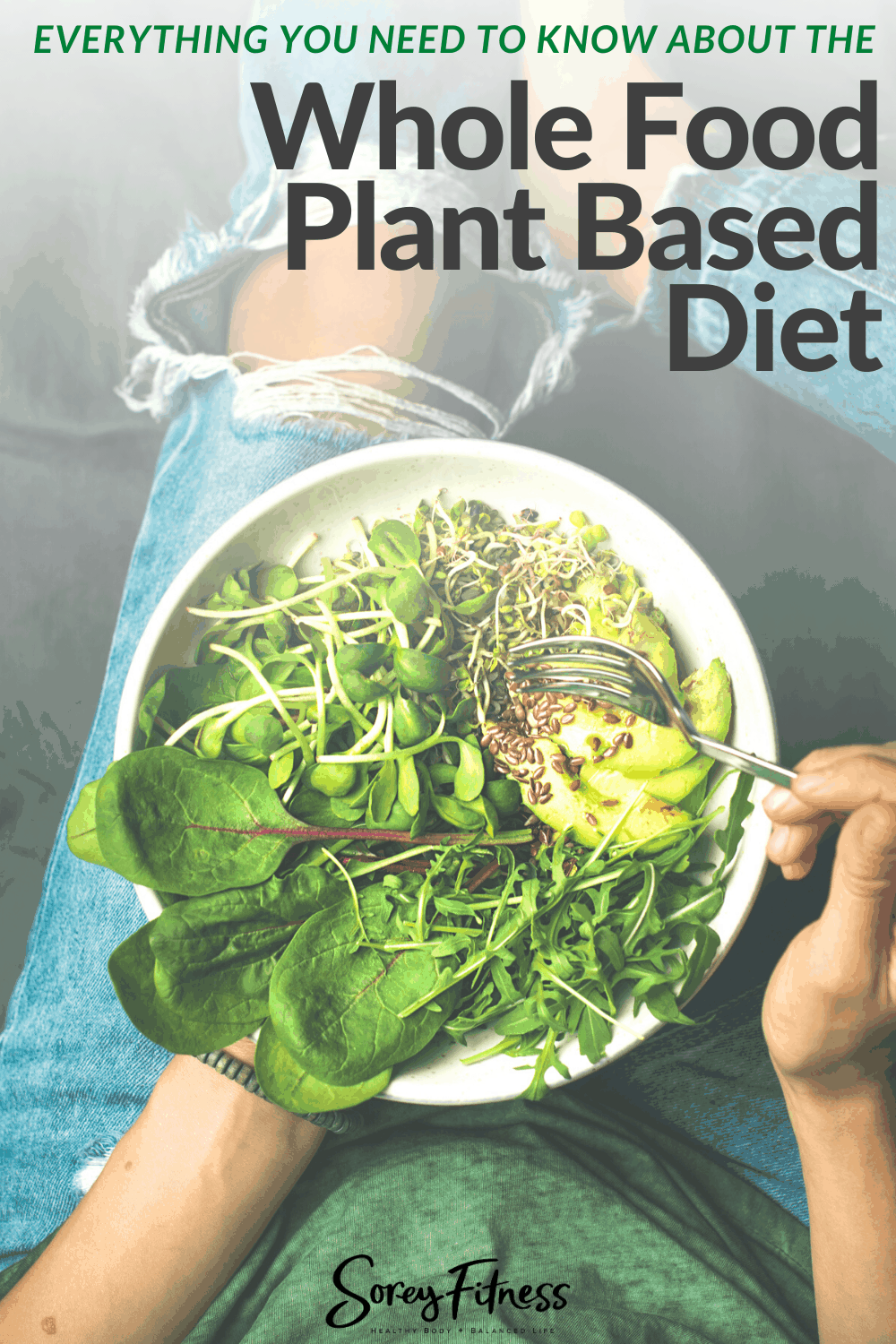
Whether you’re trying to lose weight or improve your overall health, you’ve likely heard about the Whole Food Plant Based Diet (WFPB Diet) from your friends or on social media.
Eating a plant based diet is more than a passing fad and has been around for centuries in various forms and in different countries around the world.
There are numerous studied health benefits to eating a whole food plant based diet, such as improved cholesterol, weight loss, reduced BMI, reduced osteoarthritis symptoms, and more. If you have chronic health problems or want to lose weight, it’s worth considering!
In this post, we sharing details on what the WFPBD is along with a list of amazing plant based recipes for every meal to get you started.
What is the Whole Food Plant Based Diet?
A Whole Food Plant Based Diet (also called a plant based whole food diet) is a diet consisting mostly of whole foods (foods that are minimally processed) that are plant based and not of animal origin.
Some people who eat a WFPBD eliminate meat and animal-based foods completely, while some continue to eat animal products, but only in moderation and as a supplement to a diet that mostly focuses on plant based foods.
What foods are allowed on a whole food plant based diet?
The foods that are emphasized on a whole foods plant based diet slightly differ between people. Some WFPBD dieters restrict the consumption of moderately processed foods like oils, plant milks, tofu, etc., but others continue to eat these foods in moderation.
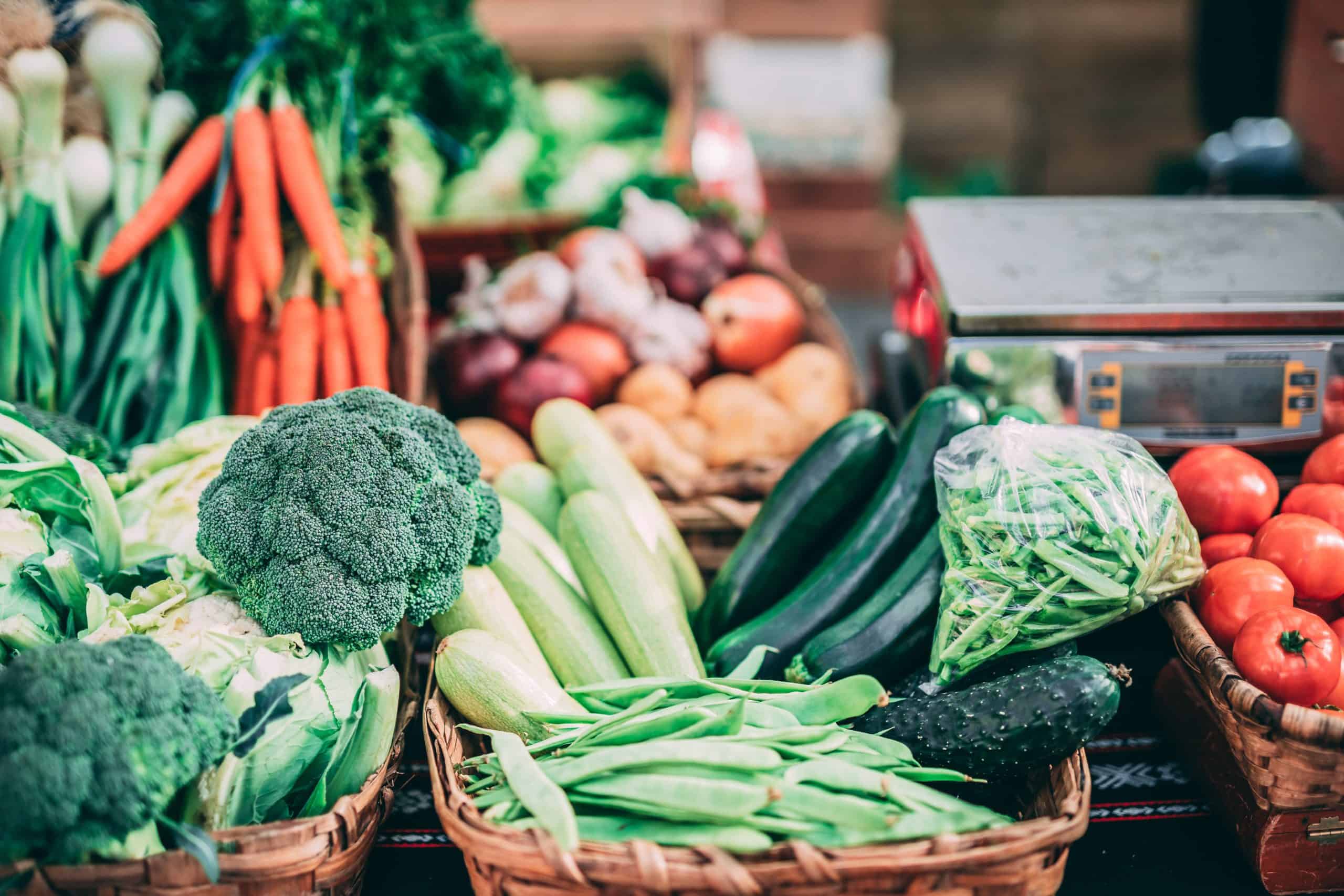
Either way, the emphasis in the WFPB diet is whole foods, so not relying too heavily on more processed foods like protein powders, vegan meat substitutes, etc.
If you’d like to add them, these more processed foods shouldn’t comprise the bulk of your diet.
Here are the foods to emphasize in the whole food plant based diet:
- Fruits
- Vegetables
- Nuts, seeds, and nut/seed butters
- Whole grains
- Legumes (beans, peanuts, peas, lentils, chickpeas, etc.)
- Roots and tubers (carrots, potatoes, sweet potatoes)
- Plant based milks, unsweetened preferably
- Tofu and tempe
Foods to limit or eat in moderation:
- Plant based protein powders
- More processed vegan foods (like cheeses, meat substitutes, etc.)
- Highly processed vegan meat substitutes
- Animal products
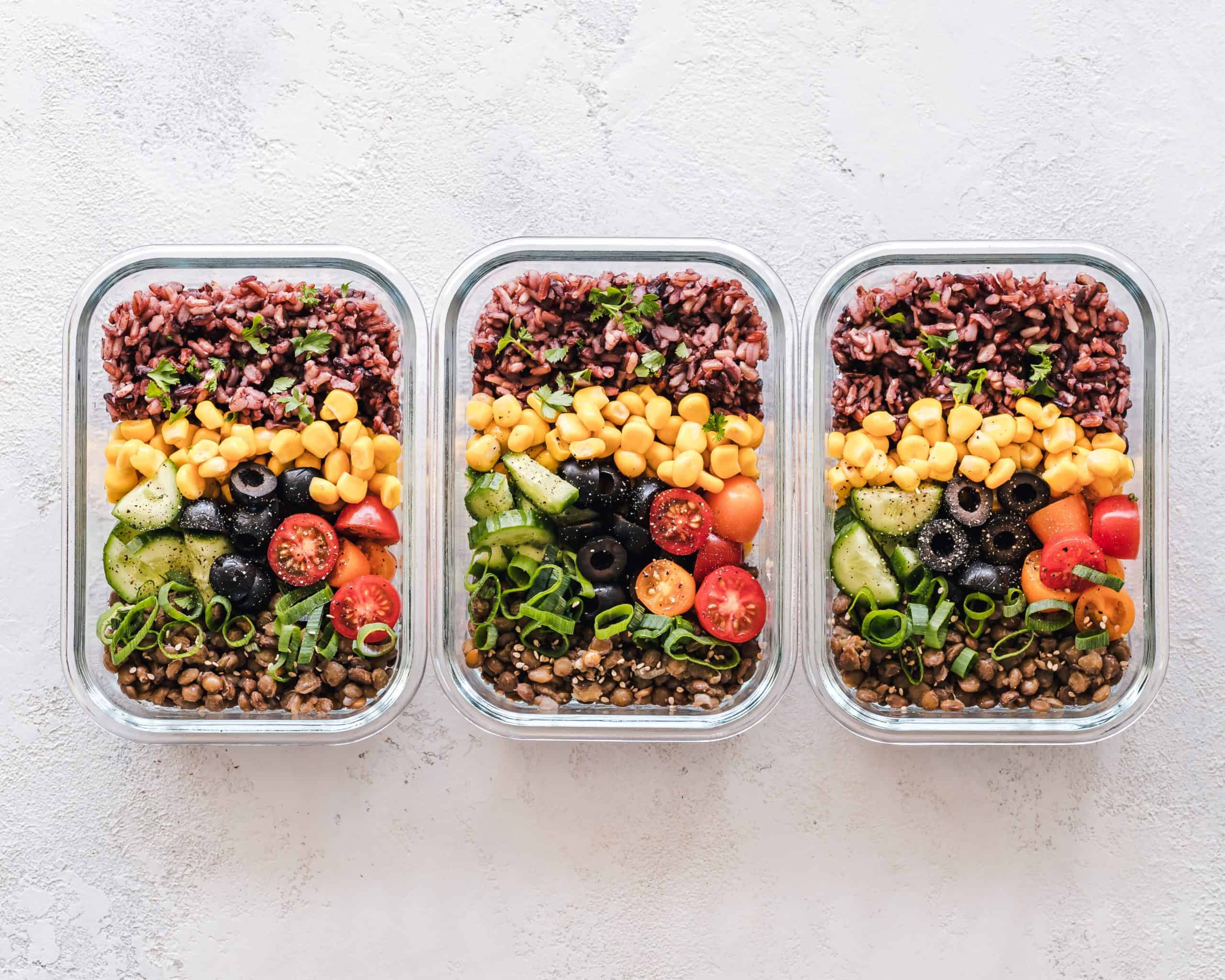
What’s the difference between a vegan diet and a plant based whole food diet?
While a vegan diet and the whole food plant based diet seem pretty similar, there are a few differences.
Veganism focuses on avoiding animal products not just in diet, but every area of life. So vegans avoid animal products (or products that exploit animals) in products like skincare, clothing, home products, and more.
A person following a whole food plant based diet doesn’t always avoid animal products for ethical reasons. While there is some crossover between the 2 diets, someone following a plant based whole food diet isn’t necessarily a vegan and may even supplement their diet occasionally with animal products like eggs.
Another contrast is that not all vegan foods fall within the whole food plant based diet. Some foods that are considered vegan are still highly processed (like Oreos, Ritz crackers, or sugary breakfast cereals) and would not be something you’d eat on a plant based whole foods diet.
So a whole food plant based diet is more restrictive than a vegan diet in many ways, so it’s important to make sure that you’re meal planning and prepping to make sure that you’re getting all your meals in without relying on vegan processed foods.
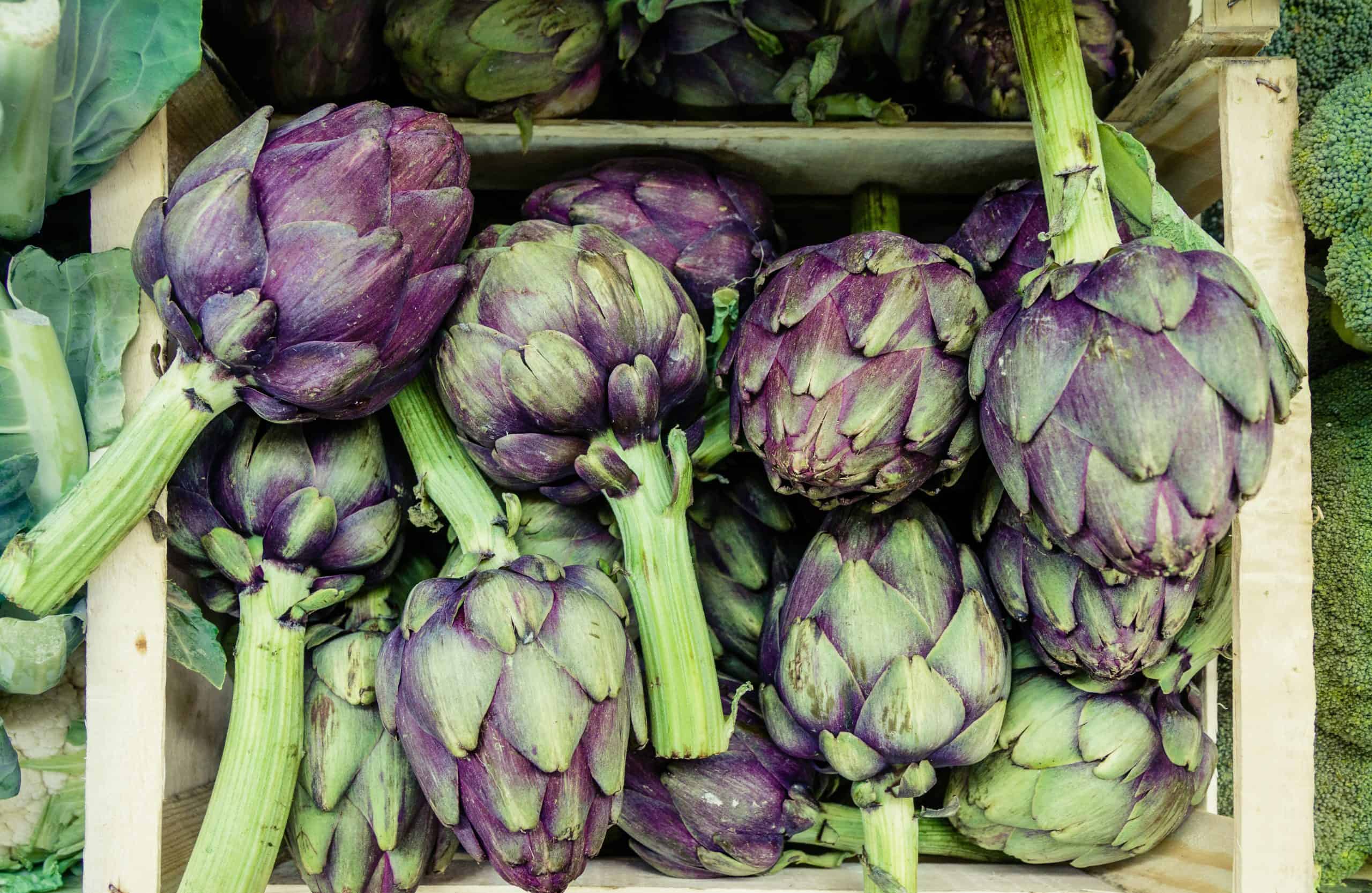
Benefits of a whole food plant based diet
There are many health benefits to a plant based diet that emphasizes whole foods. Here are a few of the benefits shown by studies and research:
- Decreased BMI and cholesterol
- Prevention and treatment of type 2 diabetes
- Alleviates symptoms of osteoarthritis
- May help manage recurring prostate cancer
- Effective for weight loss and obesity management
- May alleviate angina symptoms
A whole food plant based diet can provide many positive health benefits and reduced inflammation for those partaking in the diet.
Is a WFPB diet good for weight loss?
Multiple studies have shown that a whole food plant based diet can be great for weight loss, obesity management, and decreased BMI.
When you focus your diet on whole foods (like brown rice, greens, fruits) and avoiding calorie-dense processed foods, it is easier to keep your calorie intake balanced while still eating a wide variety of food.
Whole foods provide a variety of nutrients like fiber and protein that processed foods often lack, keeping you full longer.
Health considerations when eating a plant based whole food diet
When beginning your WFPB diet, here are a few things to consider:
Vitamin and mineral deficiencies
If you’re eating a WFPB diet and not eating a lot of vitamin-fortified processed foods, you’ll want to make sure that you are getting adequate vitamins and minerals in your diet.
For example, vitamin B12 is a nutrient that is found almost exclusively in meat products, so people eating a plant based diet or vegan diet need to get vitamin B12 from fortified foods or from a supplement.
Vitamin B12 is important for nervous system function, metabolism, red blood cell formation, and it regulates DNA, so taking a high quality vitamin B12 supplement is important for those who are eating a plant based diet.
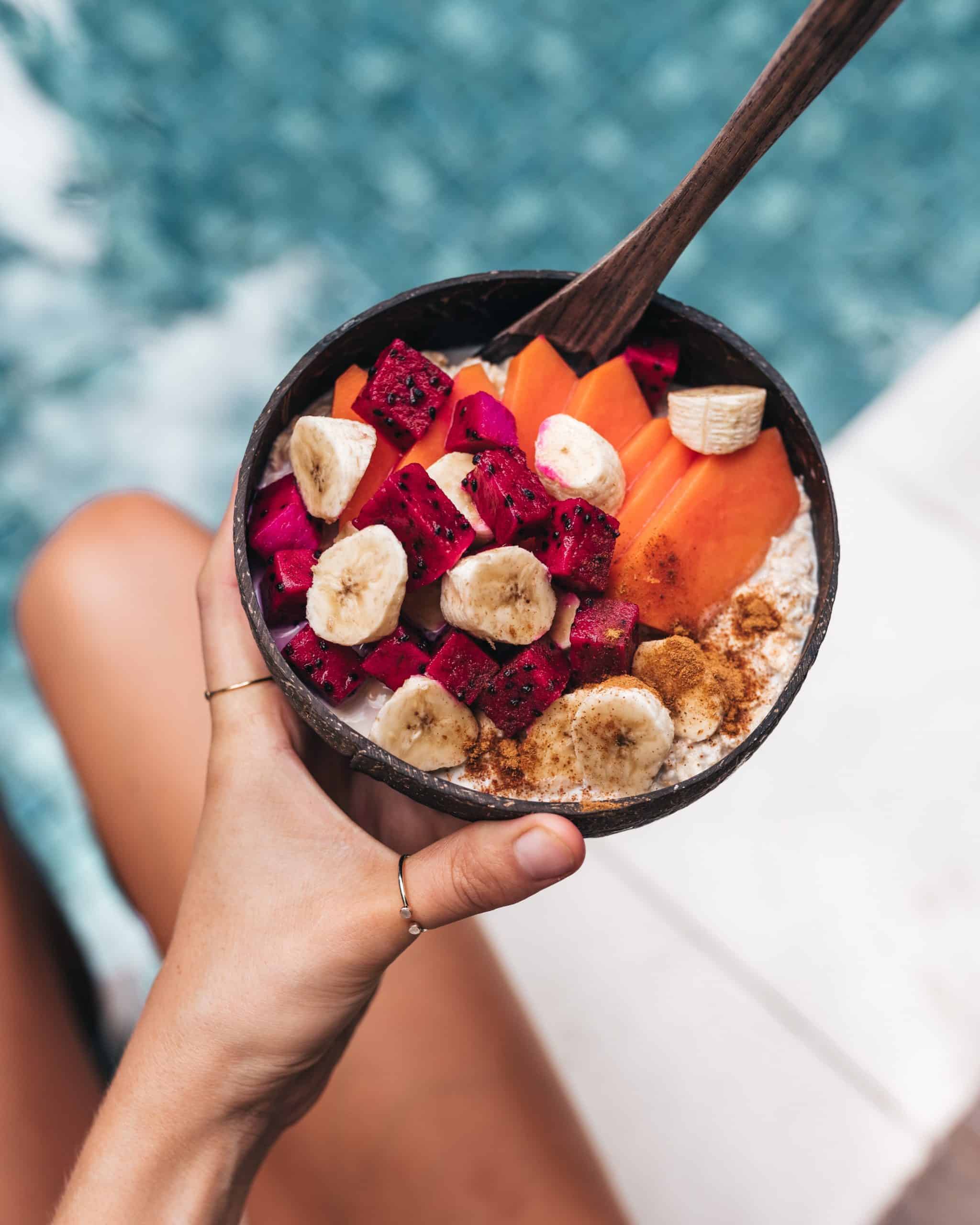
Other nutrients that may run low on a plant based diet are iron, fatty acids, vitamin D, calcium, and zinc. Consider supplementing with these nutrients as well if you’re trying a plant based diet.
If you have special health concerns or are involved in heavy activity and sports, it’s a great idea to meet with a dietitian who specializes in sports nutrition or plant based diets to help you create a plan to meet all of your nutrient needs while on a plant based diet.
Make sure you are planning a balanced plant based diet and not skipping snacks and meals if you’re on a plant based diet to prevent nutrient deficiencies.
Adequate protein
One thing that people are concerned about with a plant based diet is eating adequate amounts of protein. Since plant proteins aren’t digested as readily by the body as animal proteins are, it’s recommended that athletes eating a plant based diet increase their protein consumption by 10% (Muth, ACE Sports Nutrition for Health Professionals, p. 353.).
Choose foods that are whole and higher in protein (like brown rice vs. white rice) and eat a variety of foods each day to ensure you are getting the 8-10 essential amino acids in your diet each day.
If you choose to supplement your plant based whole food diet with occasional animal products, make sure that you are buying high quality animal products:
- Eggs: free range, cage free, local farm eggs, etc.
- Dairy products:
- Fish and seafood: wild caught, low mercury, sustainably harvested
- Poultry: free range, cage free, etc.
- Pork or beef: free range, grass fed, or grass finished
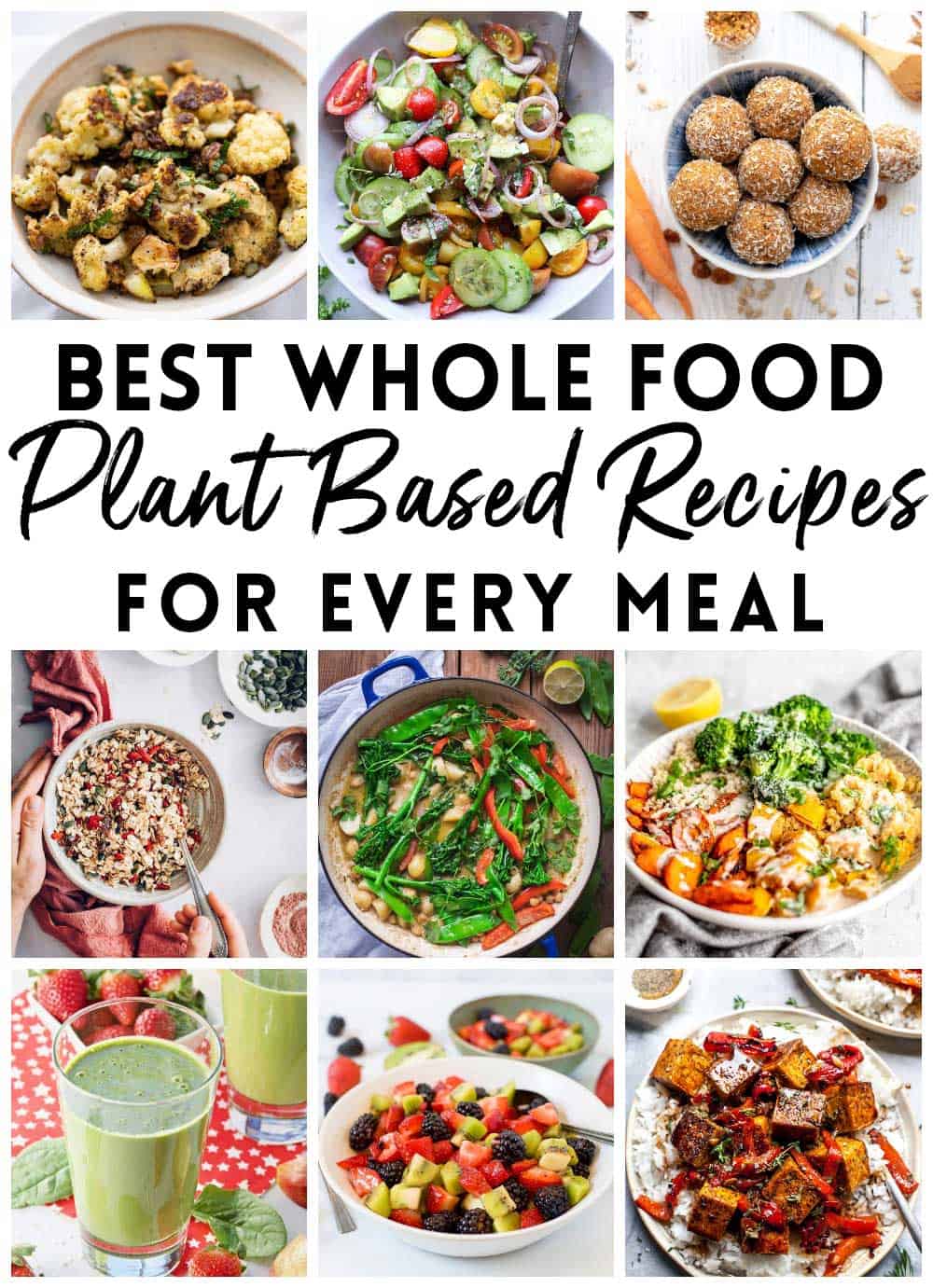
Whole Food Plant Based Diet Recipes for every meal
Ready to start your whole food plant based diet? Here are 26 amazing plant based whole food recipes for every meal to get you started! I love to cook oatmeal in coconut milk because it makes it creamy, and the fat in coconut milk makes it more satisfying. You could use either regular canned coconut milk or low fat canned coconut milk This Sweet Potato Kale Hash recipe is an easy way to add veggies to your breakfast. Full of flavor and nutrients, this vegan breakfast hash will be a morning favorite! This easy sugar-free date granola is so crunchy and flavorful! Ready in 30 minutes, meal prep friendly and easily customizable, it’s made with affordable staple foods, oil-free and fully vegan. No sugar or syrup needed to make this addictive yet healthy plant-based cinnamon granola! A true family favorite and nutritious staple treat. This savory breakfast bowl makes a healthy, balanced option for a plant-based breakfast. It contains healthy fats, complex carbohydrates and protein to cover all your macronutrients and it’s full of flavour and nutrition. Try making it ahead of time for healthy breakfasts all week. Serve up this colorful Blackberry Kiwi Fruit Salad as a side for breakfast, lunch, or dinner! This delicious and simple fruit salad is top 8 allergen free and paleo Healthy Hemp Heart Clean Green Smoothie is perfect to get you on track to a healthy lifestyle. PLANETARY DIET friendly. Combines plant-based protein, fruits, and veggies. Dairy and sugar-free. Creamy and delicious vegan nacho cheese sauce with sunflower seeds. Veggie-based, budget-friendly and allergy-free for everyone to enjoy. These delicious nut free Carrot Cake Bliss Balls are moist and delicious and perfect to make for school lunches. These are also dairy free and freeze well. Moist with crunchy edges, and tons of nutty flavour, these almond flour peanut butter cookies are bursting with deliciousness. They’re simple to prepare, only 6 ingredients and 20 minutes is all you need to get these done. Clean ingredients have never tasted this good! Venezuelan Guasacaca is healthy, vibrant, tangy, spicy and bursting with fresh flavour! It’s simple to make, just toss everything into your food processor or blender, and it’s ready in less than 10 minutes, with no cooking required! This incredibly fresh green sauce is a wonderful alternative to guacamole that you’ll be asked to make again and again. These dried kiwi slices make for an excellent snack, smoothie bowl topping or granola ingredient. Kiwi chips are easy to make in the oven, and is a healthy, low calorie treat. This plant based veggie korma uses pureed butternut squash and coconut milk to create a luscious cream sauce full of fragrant spices. No one will miss the dairy! Make this korma your own by including all of your favorite vegetables and beans or legumes; I use a mix of roasted cauliflower, broccoli and mushrooms with chickpeas. Crispy Balsamic Tofu with roasted red peppers is a quick and easy meal that comes together in just 20 minutes. Vegan, gluten free, and perfect for meal prep, this tofu recipe will become your go-to. This creamy, flavor-forward, Vegan Lentil Tortilla Soup is the perfect quick and easy weeknight dinner! It takes just 20 minutes to throw together and uses just a handful of pantry staple ingredients. It’s healthy but super hearty so the meat-eaters in your life won’t even realize that it’s totally vegetarian! This vegetarian Thai green curry made with new potatoes, snow peas, chickpeas and broccoli and a healthy splash of coconut milk is ready in no time and is absolutely delicious. What a wonderful recipe to enjoy when spring produce arrives! Butternut Squash Black Bean Stew is a comfort food classic ! An easy, 20 minute, ultra delicious recipe you’ll eat all season long. Vegan, gluten free recipe with Instant Pot and stovetop instructions. These vegan red lentil quinoa bowls are full of nutrition and perfect for meal prep. They feature red lentils, quinoa, roasted squash and carrots, broccoli and lemon tahini sauce for a filling, buddha bowl-style meal. This recipe is gluten-free. Cauliflower is one of those subtle ingredients that acts as a blank slate, letting the spices and seasonings you use really shine. Here, chili powder, cumin, and cayenne transform the humble vegetable into a centerpiece of this meal. Roasting the cauliflower for a short time at high heat allows the florets to get crispy and caramelized. Summer tomatoes are at their finest right now, so you should really make this Vegetarian & Whole30 Quick Tomato Salad with fresh herbs, cucumbers, and avocado! A classic French ratatouille recipe that is vegan, gluten-free but has lots of flavour. Upgrade your regular “sprinkle of salt and pepper” roasted cauliflower recipe to this flavor packed sweet and salty goodness! Za’atar roasted cauliflower with golden raisins is the perfect combination to turn even the pickiest eater into a veggie lover. This grain free Mediterranean cauliflower salad is filled with Greek spices and veggies for a filling and healthy meal. It's greens free, gluten free, grain free and dairy free.Breakfast recipes
Coconut Ginger Date Oatmeal
Sweet Potato Kale Hash
Easy Sugar-Free Date Granola
Savory Vegan Breakfast Bowl
Blackberry Kiwi Salad
Snack Recipes
Healthy Hemp Heart Clean Green Smoothie
Veggie-Based Vegan Nacho Cheese Sauce
Carrot Cake Bliss Balls
Almond Flour Peanut Butter Cookies
Venezuelan Guasacaca (Wasakaka)
Dried Kiwi Slices
Lunch & Dinner Recipes
Vegan Korma with Creamy Butternut Sauce
Balsamic Tofu
Vegan Lentil Tortilla Soup
Vegetarian Thai Green Curry
Butternut Squash Black Bean Stew
Red Lentil Quinoa Bowl
Vegan Mexican Bowl
Side dish recipes
Herby Quick Tomato Salad
French Ratatouille
Za'atar Roasted Cauliflower with Golden Raisins
Mediterranean Cauliflower Salad
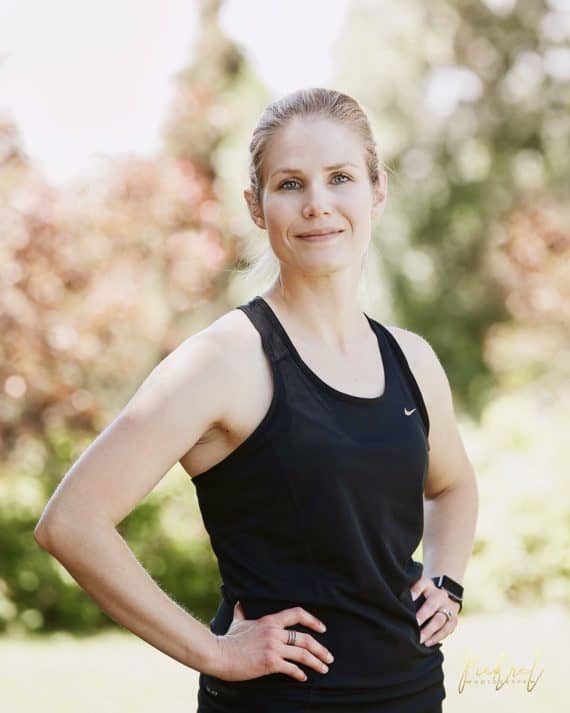
Sarah Jane Parker is a food and healthy living blogger at The Fit Cookie, an ACSM Certified Personal Trainer, ACE Certified Health Coach, Revolution Running certified running coach, YogaFit Level 1 certified yoga instructor, and an ACE Certified Fitness Nutrition Specialist.

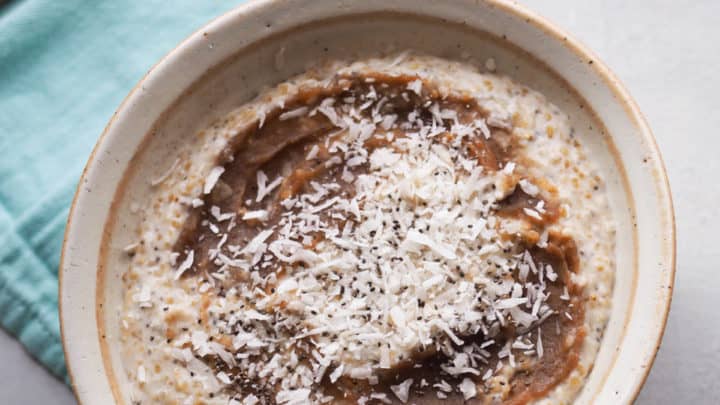
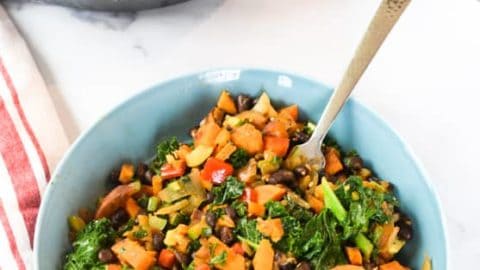
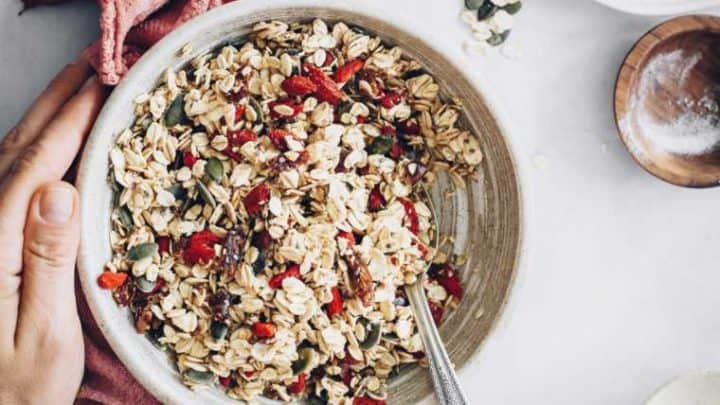
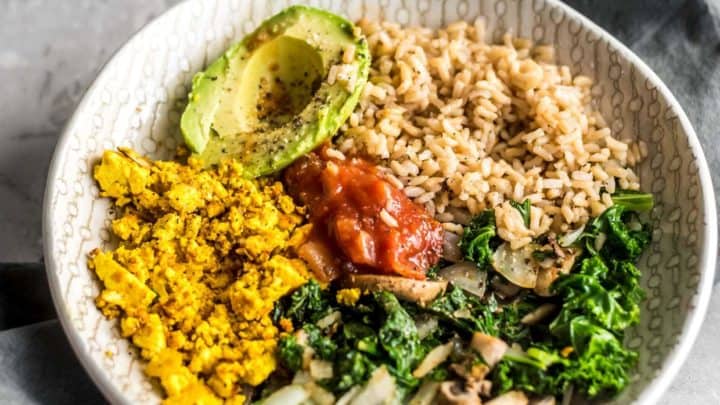
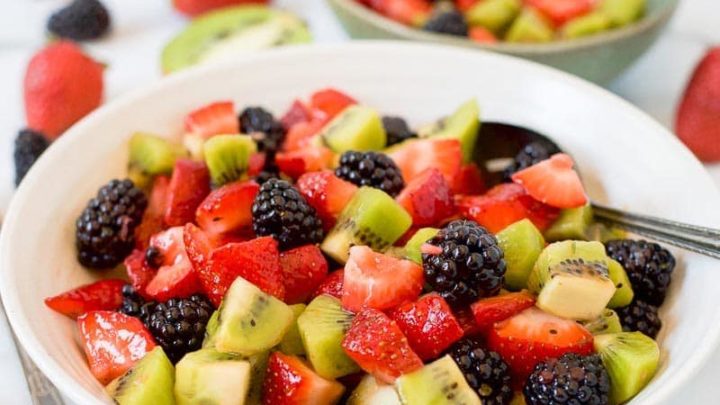
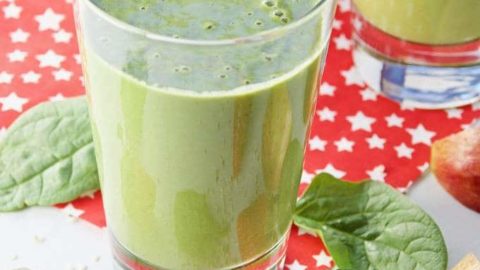
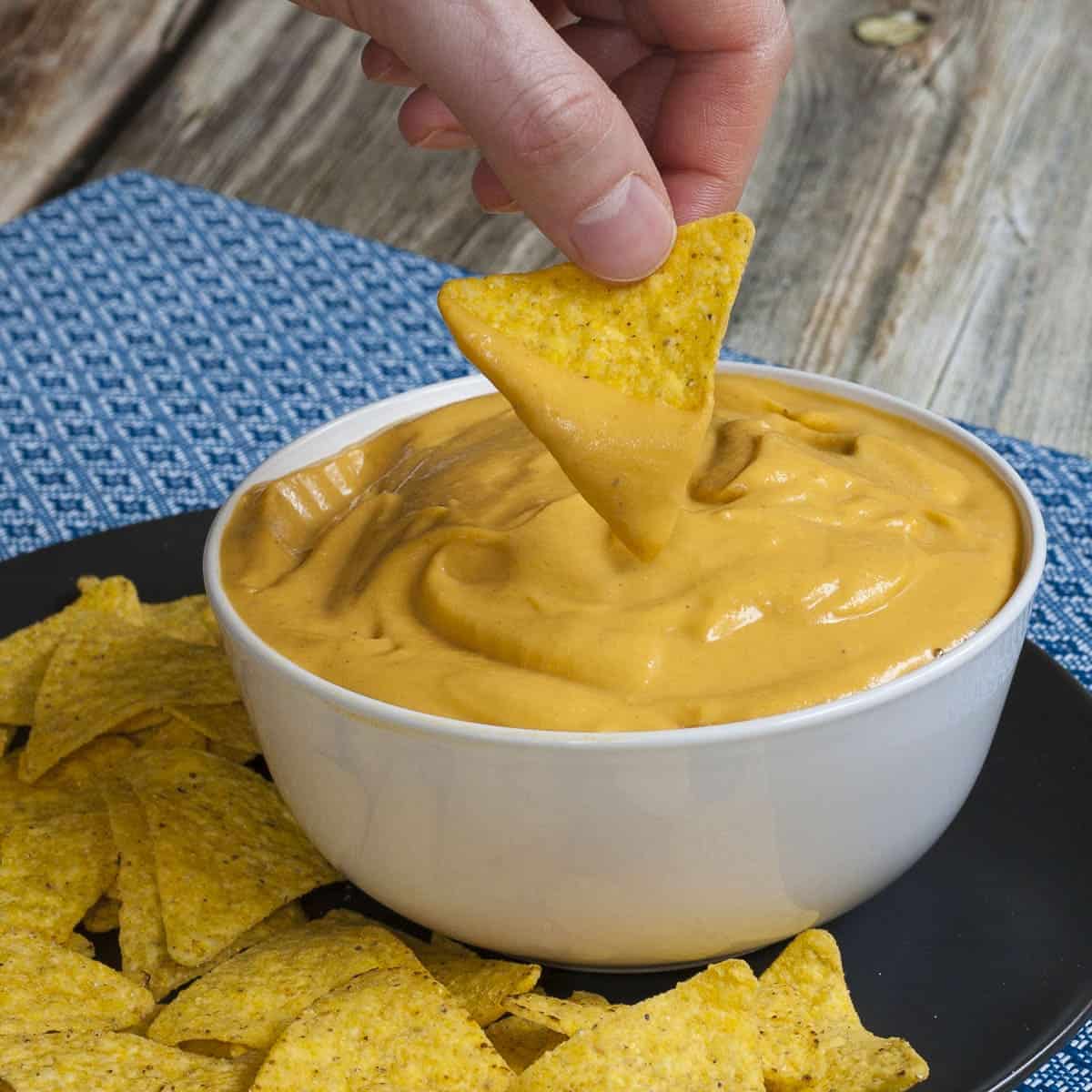
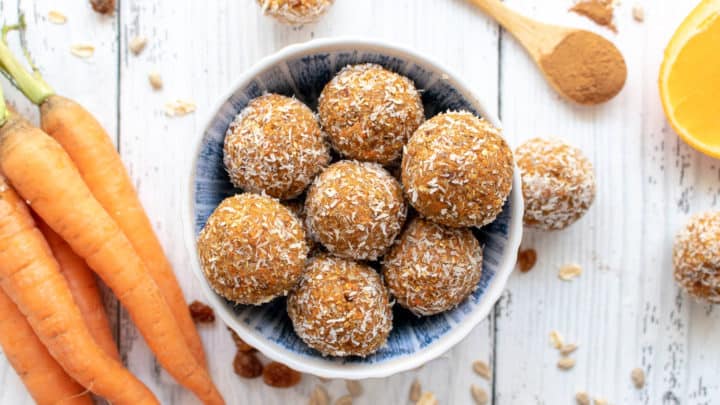
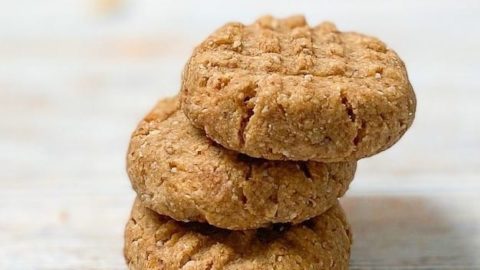
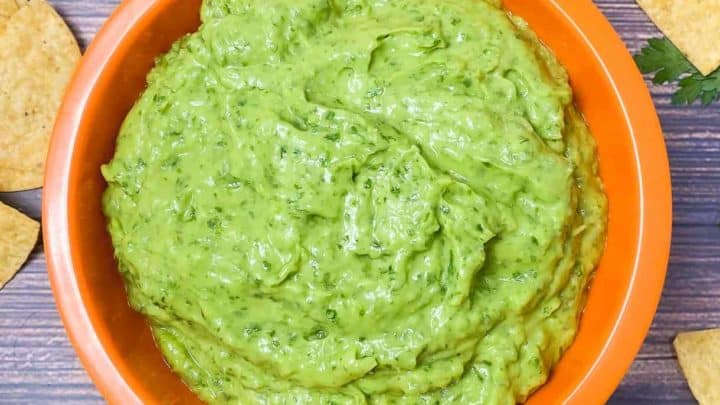
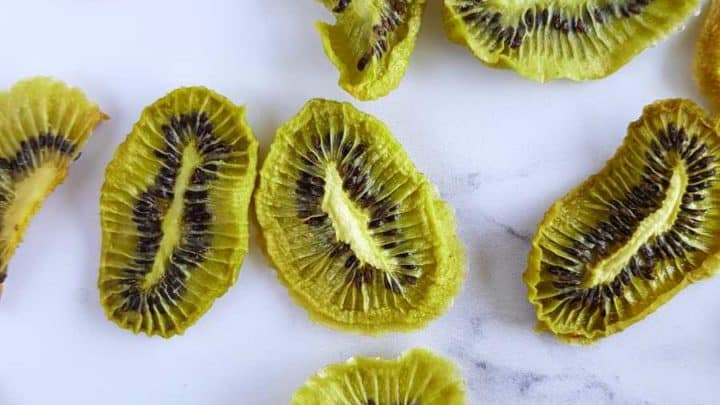
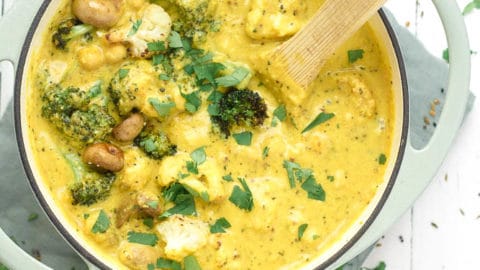
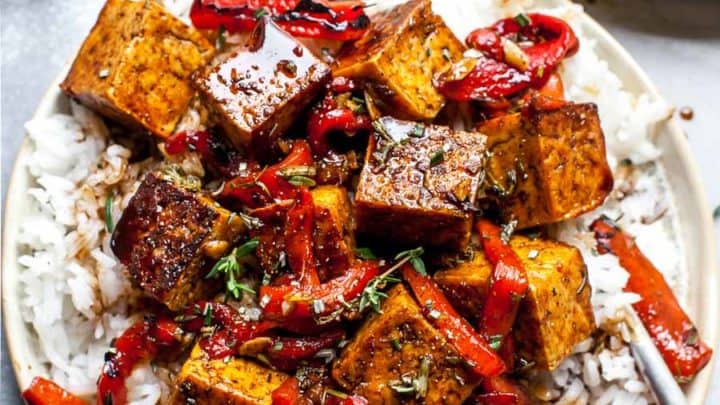
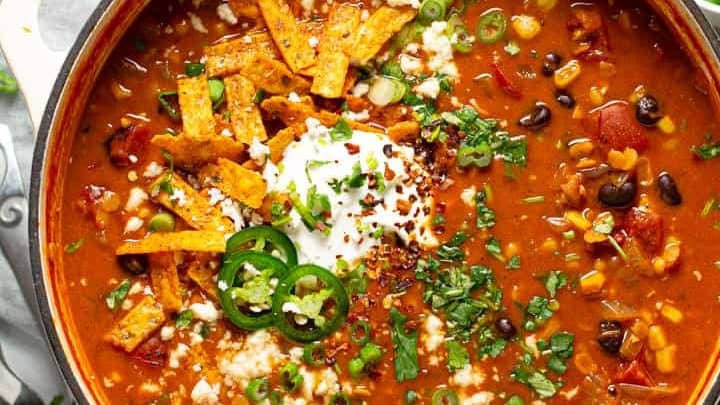
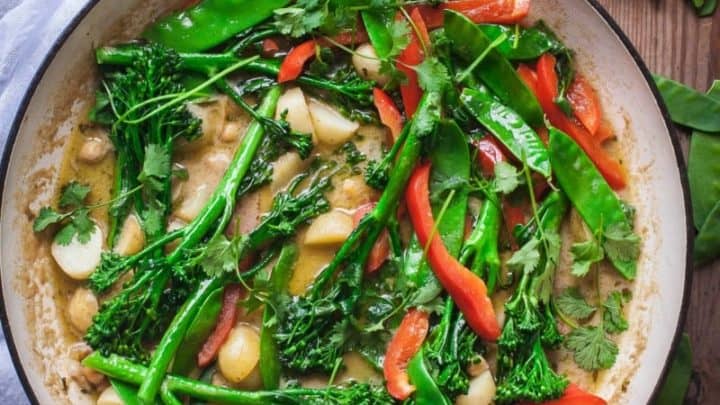
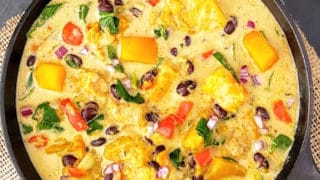
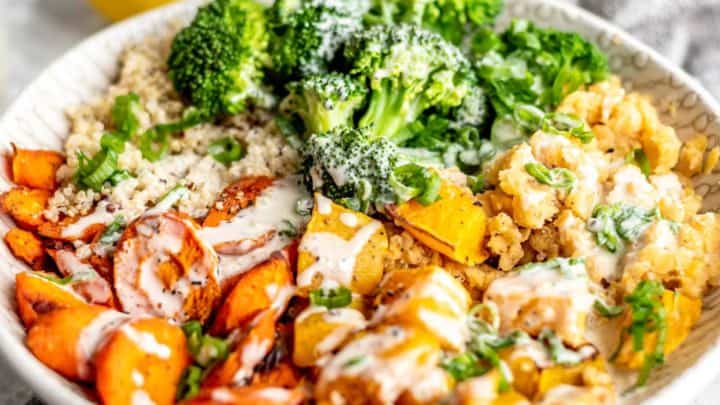
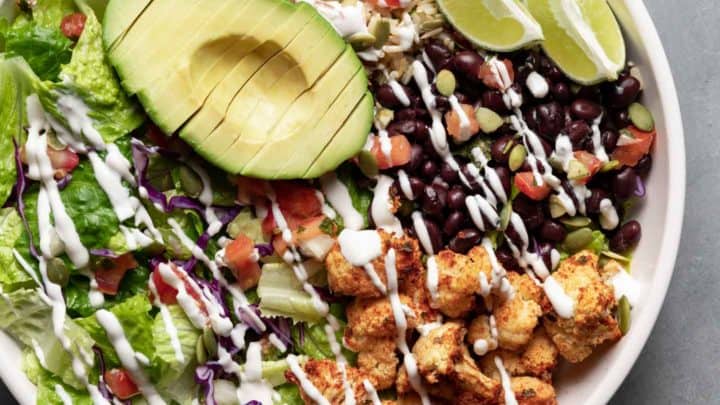
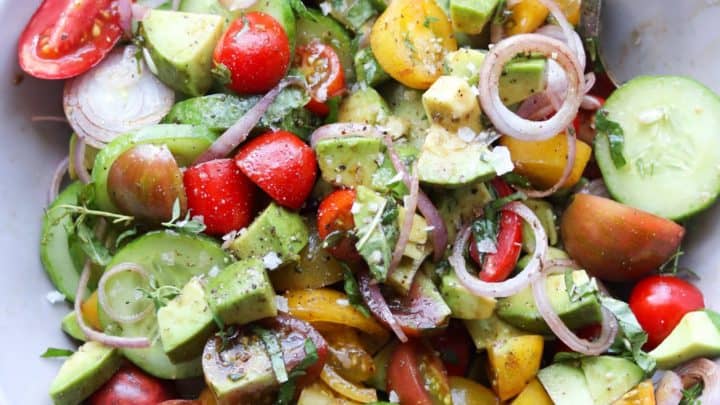
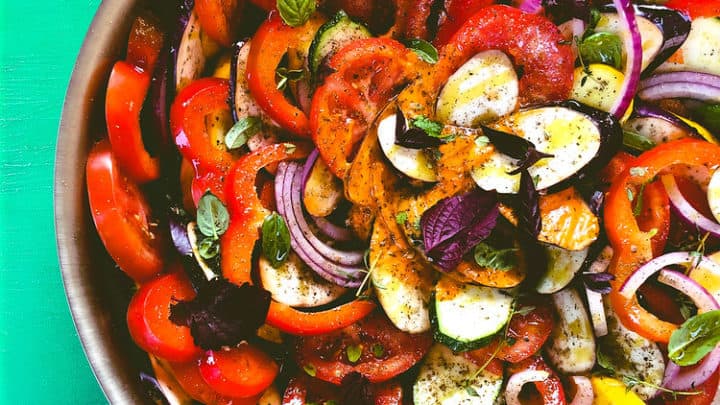
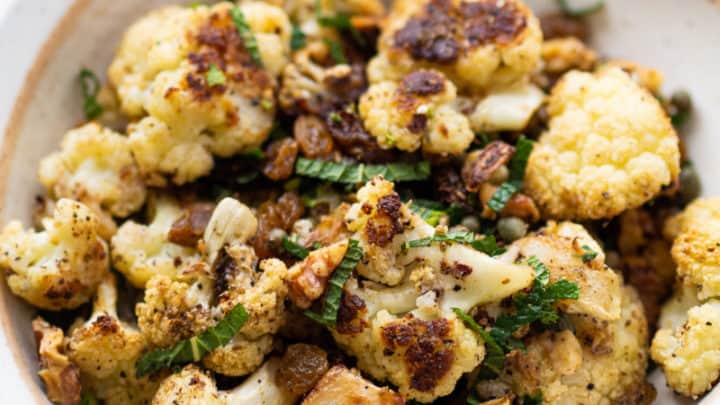
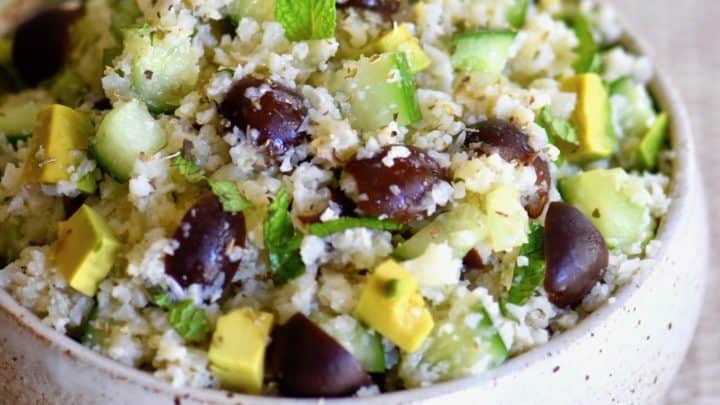




What do you think about plant protein powders – I’ve been using hemp, pea and PB2 and almond butter 2 – I’m a big guy and have 230 lbs of lean body mass -Been doing Keto for 5 years for diabetes and have kept my A1C under 6.5 but I am concerned about the amount of animal protein and fat that I eat. Also, I am in kind of a weight loss rut losing the same twenty pounds over and over. So I am giving PBWF a shot to see how it does with my weight and numbers – Triglycerides always high. Lost the twenty lbs again after a month and hoping to blast through. Sticking with it till my next doctor visit in July and seeing how I do with my numbers and weight.
Hi Michael! Plant protein powders are a great option for adding more protein to your diet, just make sure that it doesn’t make up the bulk of your diet and you’re still getting a lot of whole foods.
Are you still planning on doing keto while you do the PBWF diet? If you are, I’d recommend meeting with a dietitian who can help you make sure that you are getting enough nutrients if you are trying to combine several diets, especially since you have diabetes. If you’re eating pretty healthy and your triglycerides are high, it could be hereditary, but a doctor can help you figure that out and a dietitian can help with setting up eating plans to make sure that you’re meeting all of your nutrition needs met while still working on your weight loss goals and health concerns.